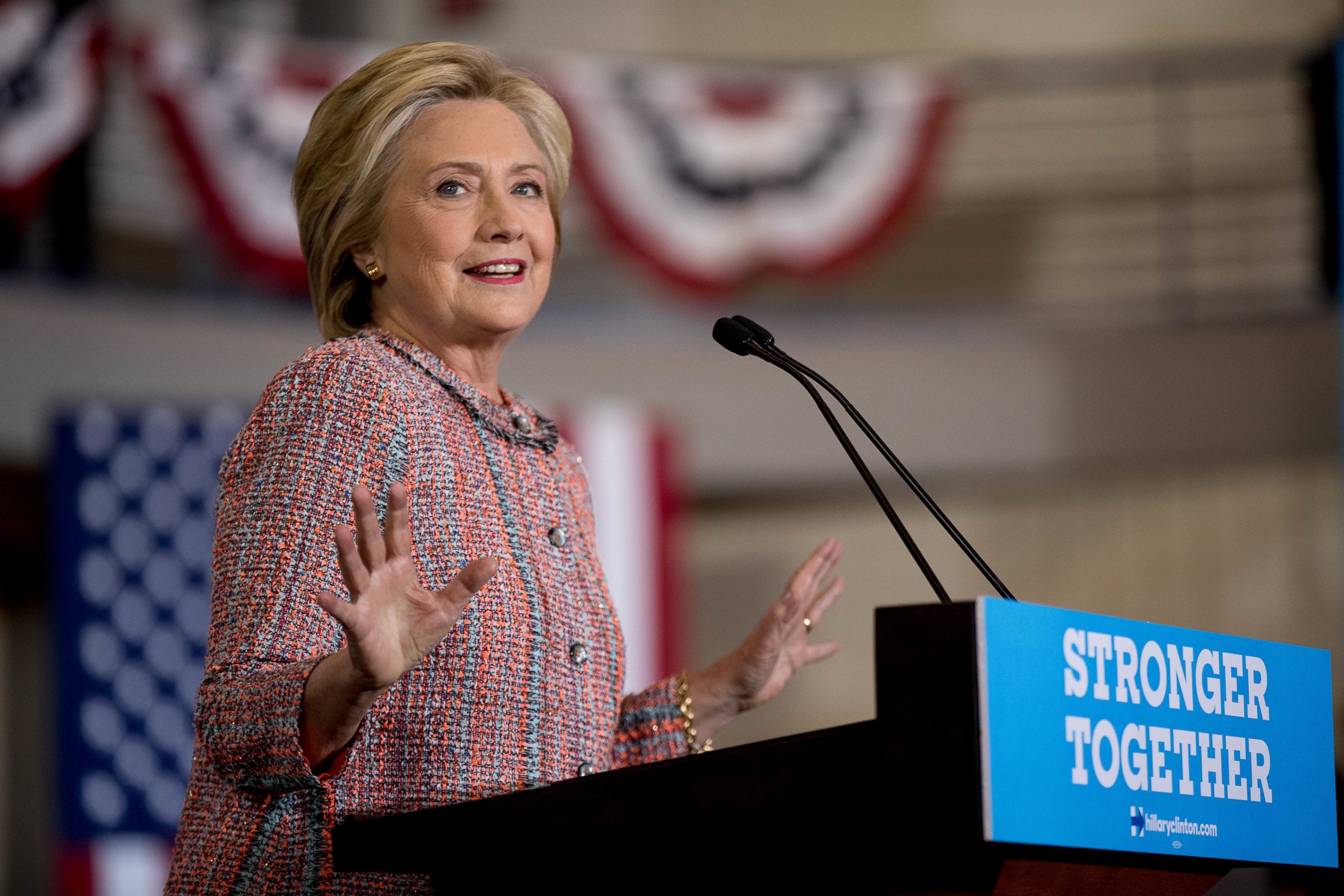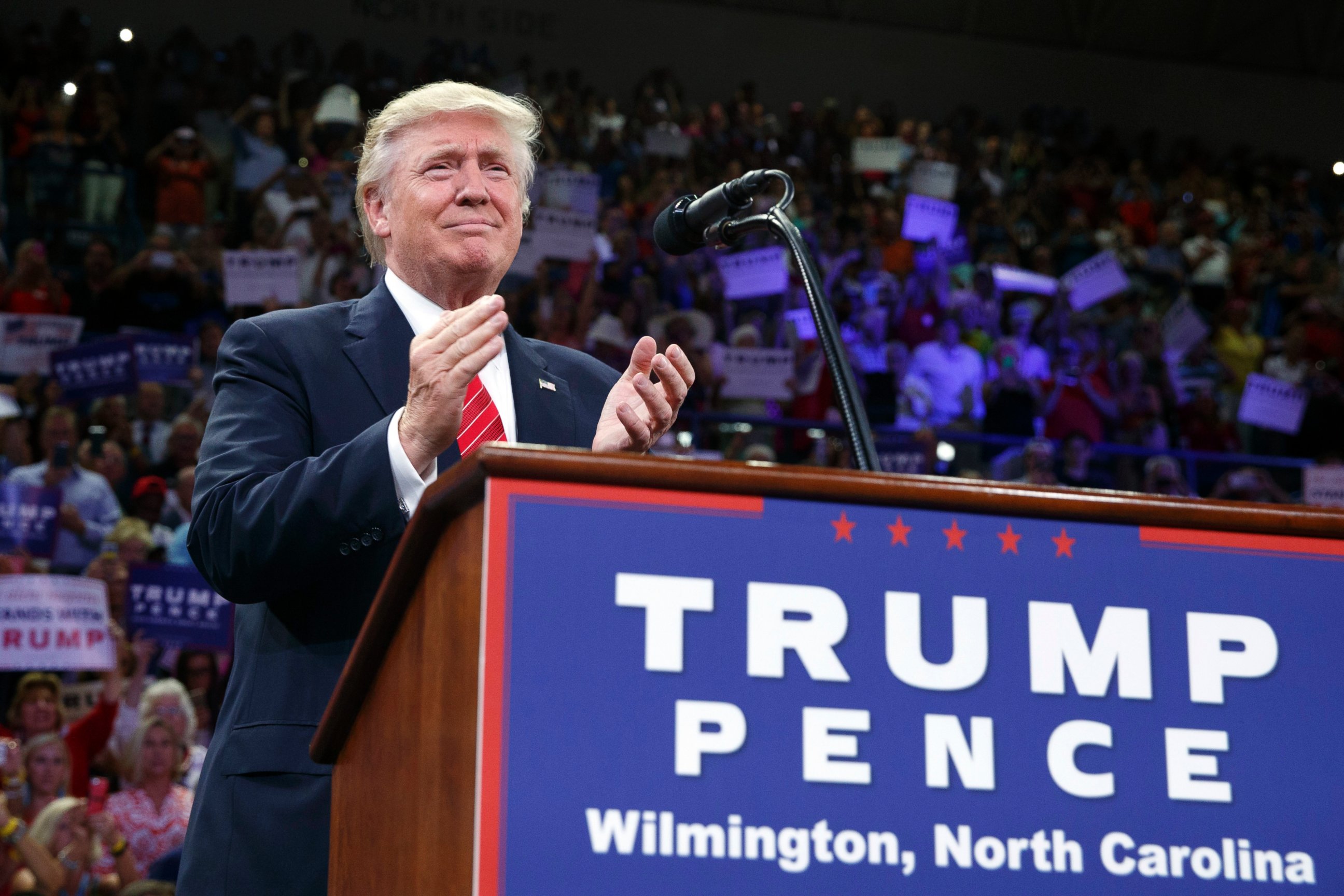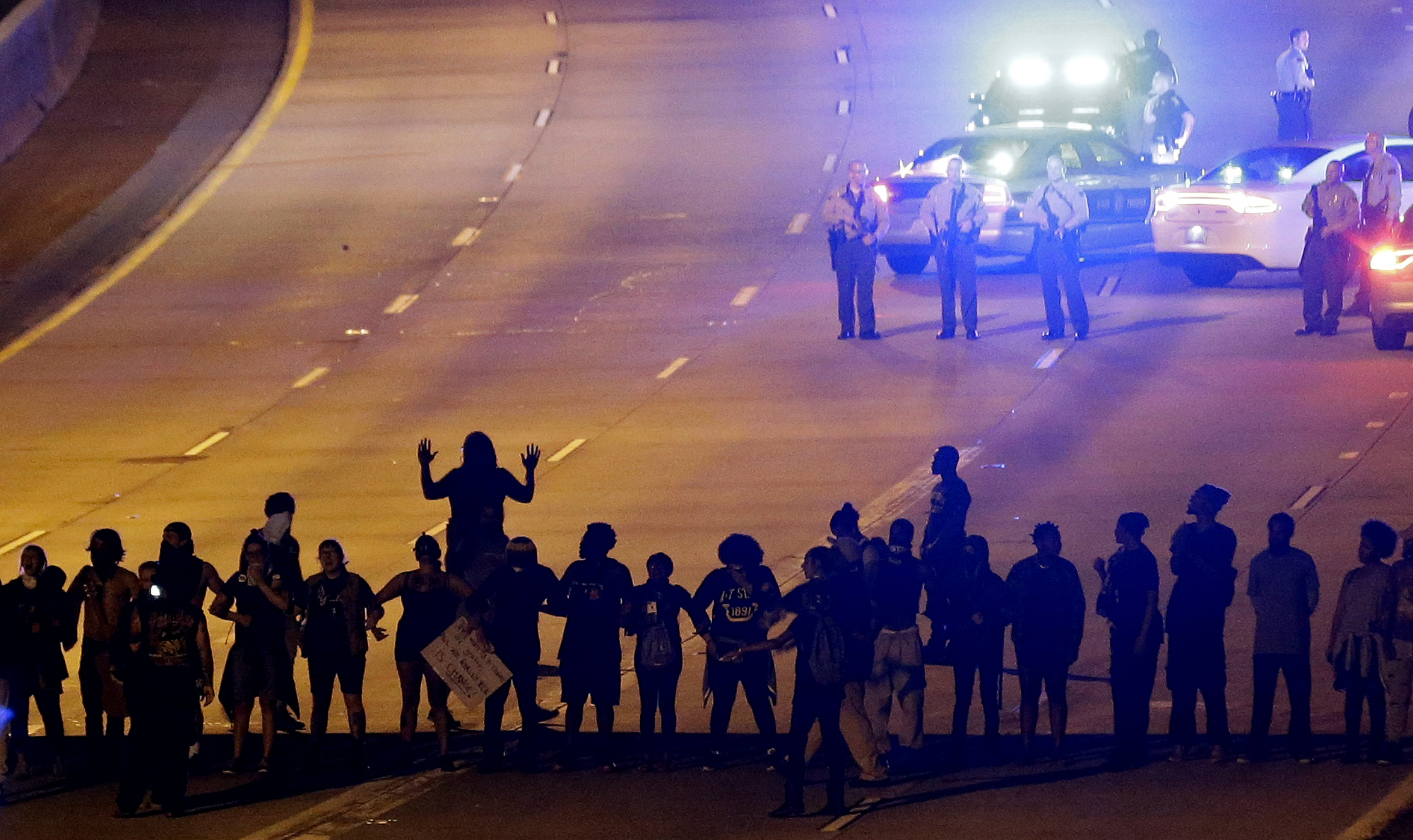Battleground Breakdown: Where North Carolina Stands in the 2016 Presidential Race
A look at how the Tar Heel State may vote in the general election.
State’s Voting History in Presidential Elections
— -- North Carolina has leaned to the right in presidential elections since the early 1990s, voting for the Republican nominee in five of six races. The one exception came in 2008, when then–Illinois Sen. Barack Obama defeated Sen. John McCain by just 0.32 percentage point to capture the Tar Heel State. In the last election, former Massachusetts Gov. Mitt Romney received 50.4 percent of the vote to Obama’s 48.4 percent.
How It Played in the Primaries
The Democratic and Republican primaries were held in North Carolina on March 15, and while Hillary Clinton and Donald Trump won their respective contests, the race was much closer on the Republican side. Trump beat Texas Sen. Ted Cruz by just 4 points, 40 to 36 percent, with Gov. John Kasich a distant third at 12 percent. Clinton easily defeated Sen. Bernie Sanders, 54.6 to 40.8 percent.

Money Matters
The Clinton campaign has spent $10 million in North Carolina and will add $7 million on advertisements in during the campaign’s final six weeks. That $7 million is more than twice what Trump’s campaign plans to spend on television ads in nine battleground states combined, according to CMAG/Kantar Media. In North Carolina, Trump has spent almost $2.5 million and has set aside just over $400,000 for ads during the final few weeks.

Ground Operations
The Clinton campaign lists 33 offices in the Tar Heel State, whereas Trump opened his first North Carolina office only in early September. As of Sept. 12, Trump had three offices, all coordinated by the Republican National Committee. There are an additional 21 party offices throughout the state and 115 Republican Party staff members and 485 trained volunteers working in North Carolina.
State Issues
The Public Facilities Privacy and Security Act — known widely as House Bill 2 or the Bathroom Bill — made headlines in March with its passage. The act notably bars people from using restroom facilities that do not correspond to their sex assigned at birth. After backlash from members of the transgender community and their advocates, businesses and organizations announced plans to move from and halt expansion in the state and cancel events that had been planned for it.
In May the U.S. Department of Justice told Republican Gov. Pat McCrory the act violated federal anti-discrimination law, leading him to file a suit against the federal government — which he dropped this month.
The shooting death of Keith Lamont Scott by police officers on Sept. 20 and subsequent protests in Charlotte have brought race relations and police violence to the forefront of discussion statewide.

Latest Poll Numbers
Clinton has held a slight edge in North Carolina polls for months, though it has narrowed recently. In a Quinnipiac University poll on Oct. 3, Clinton received support from 46 percent of likely voters surveyed, to Donald Trump’s 43 percent, with a margin of error of 4 percentage points.
A Bloomberg poll on Oct. 3 showed an even closer race: Clinton 44-Trump 43 with a 3.5 point margin of error.
Clinton had as much as a 9 point lead in an NBC/Wall Street Journal/Marist poll of registered voters in early August, shortly after the Democratic National Convention.